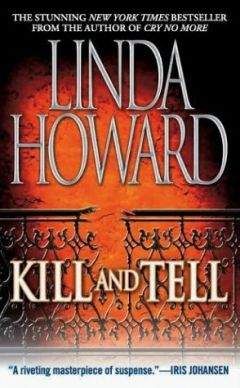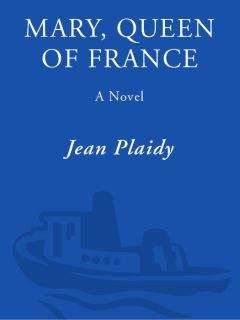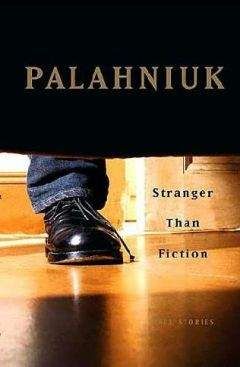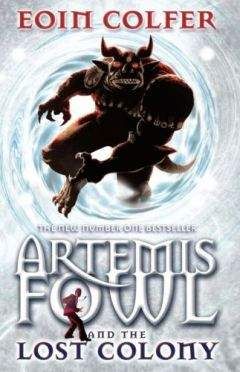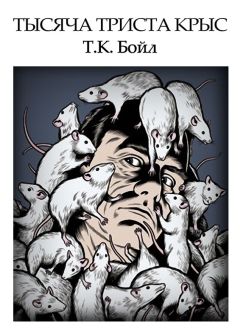Deerskin - Robin McKinley
She thought of all that now as she shook the dresses free of their sacks, thinking that the queen had sent the kennel-girl four dresses to choose from, dresses of silk and satin and lace. She had slept through the bringing-home of the thing in the tree; she had slept through the first conversations, first responses, to her adventure. She had been glad to sleep through them. But she wondered, now, with four ball-gowns fit for a queen spread out before her in the plain little room of a member of the royal kennel staff, what version of the story might even have penetrated to the heart of the court: wondered and did not want to wonder. Wondered what version of the story of the six doomed puppies might have been told. Wondered what the version of the kennel-girl's friendship with the prince might be.
Lissar found it incomprehensibly odd that a kennel-girl should pull the straw out of her hair and dust the puppy fur off her backside and put on a fancy dress and go to a ball. It was not how her father's court had been run...... "Not a hunting master with a rather large house," Ossin had said. Beech, the first huntswoman, was going to the ball. Beech, who, at the height of hunting season, stopped taking her leaders to her room, and unrolled a mattress in the pack's stall. During the winter, when everyone relaxed (and recuperated), she would go back upstairs again. All of the kennel folk slept with a few special dogs bestowed around them on their ordinary human beds; it seemed, upon reflection, that since Lissar had seven dogs special to her it was more efficient for her to sleep with them instead of the other way around.
She wondered if the story of her sleeping most nights out-of-doors with her seven special dogs had travelled beyond the confines of the kennels.
The satin dress was very beautiful, a dark bright red with ribbons and cascades of lace around the neckline; but she did not want to wear it, with her rough hands going shh ssshhh every time her fingers brushed the skirts.
The second dress was blue, light as cobwebs, with insets of paler blue and lavender; but it was a dress for a young girl, whose worst nightmares contained fantastic creatures and undefined fears never met in waking life, and whose dreams were full of hope.
The third dress was golden, vivid as fire, with gold brocade, a dress for a princess to stand and have her portrait taken in, not for a kennel-girl to wear, even if she has combed her hair and washed her hands. Even if she had once been such a princess, with her soft uncallused hand resting on her dog's neck. Especially because she had once been such a princess.
The fourth was the one she would wear. It was silver-grey, a few shades darker than Ash's fur, and it shimmered like Moonlight in a mist. The skirt was very full, and soft; her hands stroked it soundlessly. The bodice was cut simply; no ribbons or brocade. It was, however, sewn all over with tiny, twinkling stones, colorless, almost invisible, but radiant as soon as the light touched them. This was the dress she would wear, although her hands shook as she held it up.
The queen's messenger was back in the morning, bowing as he accepted three dress-sacks, and with a roll of brown paper under his arm, upon which he took tracings of Lissar's feet and hands, "that my lady's shoes and gloves may be made to fit."
The prince might decry balls in general and a ball for Trivelda in particular, but the atmosphere through and around the yellow city over the next sennight took on a distinctive, festive cast, which Lissar now knew why she recognized.
Lilac, whose parents, it turned out, were not such small farmers after all, nor quite so angry with her for running off to the king's city, would be attending the ball in a gown not begged from queen or princess but bought with money they sent her, to purchase the work of a local seamstress.
"Fortunately Marigold is a friend of mine," Lilac said; "all the seamstresses are swamped, and my gown isn't nearly as grand a piece of work as the court women's.
Indeed, you know," she added, showing an uncharacteristic hesitancy in her speech,
"I'll have money left over, if there's anything you need and don't want, you know, to ask for; I don't need it, but if I send money home my parents will be disappointed."
Lissar told her, equally hesitatingly, about the gloves and shoes. There was a barely noticeable pause before Lilac said, in her usual tone, "You are lucky. I've known one or two people who've shown up barefoot. Usually there's this terrific run on plain slippers just before a ball, for everyone who has borrowed or been given a dress from someone at the court, it's pretty simple to make a dress that doesn't quite fit do well enough, but shoes are much harder, especially if you are going to dance in them."
"What happens at a grand ball when someone comes barefoot?" said Lissar, fascinated, remembering the courtiers of her childhood.
"What happens?" said Lilac, puzzled. "I don't know, really, this is my first ball here too; I've just heard the stories. Their feet get sore, I suppose, and perhaps they're very careful to choose graceful dancing-partners. Ask Redthorn; his wife is one of them, though I don't see Redthorn as being that light on his feet."
Lilac, as usual, seemed to know everything that was happening in the city, as well as all the details about the ball itself. Lissar longed to ask her ... why the queen might have sent four ball-gowns to a kennel-girl; but she did not. Surely the queen had better sense than to believe that Moonwoman might take a job in a kennel, even a royal kennel. Ossin had never said what his mother had felt about the whole tale of the Moonwoman; only that she noticed it had no strong queens in it. The king rode out in the hunting-parties occasionally, the princess too; the queen stayed mostly at home, on the ground. Lilac had said once, kindly but pityingly, that the queen found horses a bit alarming.
Lilac offered to dress Lissar's hair for the ball; Lissar remembered, suddenly, a neck-wearying headdress she had once worn, so heavy and ornate she had felt it would slowly crush her down, till she lay on the ground to rest her head. And yet it was far simpler than some she had seen on the other ladies' heads, structures pinioned to the crown of the skull, the hair scraped over them, with hairpieces attached, adding bulk and weight, if the hair growing on the head proved insufficient, as it inevitably did.
As Lissar thought of this, Lilac had untwisted the braid Lissar commonly kept her hair contained in, and was stroking a shining handful with a brush, saying, "I've wanted an excuse to do something with your hair, Deerskin, it's such an extraordinary color."
"White," said Lissar. "Nothing extraordinary about white."
"Old people's hair isn't like this," said Lilac, thoughtfully. "Yours is almost iridescent. It breaks light like a prism."
Lissar tipped her head up to look at her friend. "You're imagining things," she said.
Lilac took a fresh grip, gently moving Lissar's head till she faced front, away from her, again. "We call it-imagining things-following the Moon," she said. "Children are natural Moon-followers. Some of us grow out of it more than others. I'm not known for it, myself," she added.
There was a little pause. Lissar, with a small effort of will, relaxed against Lilac's hands and deliberately closed her eyes. "Just keep it simple, please," she said. "I want to know it's still my hair when you're done."
Lilac laughed. "You needn't worry! You'd need a real hairdresser for the kind of thing you mean. Trivelda was wearing a menagerie, the last time she was here-birds and deer and gods know what all-these little statues, worked into this net thing she was wearing on her head. It was quite extraordinary. It's become a sort of legend.
The joke was that it was as near as she ever got to real animals . . . you can't count her lap-dogs. No one has ever seen one walk on its own, and she has them bathed every day, and they wear her perfume.
"Veeery simple," she said after a moment. "All I have to do is decide what color ribbons." She opened the little bag she'd arrived wearing round her neck; a visual cacophony of ribbons poured out: ribbons thin as a thread, as wide as the thickness of three fingers, ribbons of all colors, ribbons woven of other ribbons, ribbons of silk and velvet, ribbons with tiny embroidered figures and patterns, ribbons with straight edges, ribbons with scalloped edges, ribbons of lace.
"Mercy!" said Lissar, sitting up.
"Oh, Marigold let me borrow these. I'll take back what we don't want. Now, your dress is silver, is it not? Burgundy in your hair, then, and black like your eyes, and ...
let's see ... maybe the palest pink, to set off your complexion. The palest pink. If it weren't for your hair I'd say your skin was white.... Now hold still." Her hands began braiding. "Everyone thinks this is it, you see. That's why everyone is so excited about this particular ball. I don't think anyone will come barefoot to this one."
"This is it?" said Lissar, finding herself enjoying having her hair brushed, like one of the dogs on a grooming table, lulled by the motion and the contact. She ran her fingers down the smooth midline of Ash's skull, Ash's head being on her knee.
"How do you mean?" she asked, only half attending.
"Oh, that Ossin will offer for Trivelda. It's no secret that the king and queen are impatient to marry him off; he's gone twenty-five, you know, and they want the ordinary sort of grandchildren, not the kind that bark and have four legs, and besides, there's Camilla, who will turn seventeen in the spring, and there's this very tiresome tradition that the royal heir is supposed to marry first.
"There's an even more tiresome tradition that all noble families are supposed to marry off their children in chronological order, but it's really only the heirs that anyone pays much attention to. Ossin knows this of course-so does Camilla. Cofta and Clem are afraid she's getting too fond of that pretty count, he knows so well how to be charming and she's so young, and if they sent him away it might just make it all worse. But they can't really do much about pushing her elsewhere till Ossin is officially done with. And Ossin's fond of his sister, and likes Dorl even less than his parents do."
Lissar found herself strangely dismayed by this news, and the long gentle strokes of the hairbrush, and smaller busyness of fingers plaiting, suddenly annoyed her.
"But he doesn't like Trivelda."
Lilac chuckled. "How much do you think that has to do with it?"
"They don't want Camilla to marry Dorl."
"That's different. Dorl really isn't much except charm-and old blood-and neither of those, even, is laid very thick. There are very few real princesses around, or even wealthy farmers' daughters, and most of them have gotten married while the prince has been out hunting his dogs."
"Chasing the Moonwoman," murmured Lissar.
"Eh?"
"Nothing."
"It won't be so bad because they'll have nothing to do with one another. It would be much worse if she wanted to ride and hunt; she's an appalling rider, hates horses, and her idea of a dog ... well, those things of hers look like breakfast-rolls with hair.
And they all bark, if you want to call it barking. Anyway, she'll stay out of the barns-and kennels-and he'll stay out of the drawing-rooms. Knowing Ossin, he'll be glad of the excuse, come to that."
"It doesn't sound ... very satisfying," said Lissar.
Lilac laughed. Ash pricked her ears. "Deerskin, I've caught you out at last; you're a romantic. I would never have guessed. Do you know, I think I want a shade a little rosier than the palest pink after all. I have a brooch, I'll loan it to you, it will look perfect right here," and she stabbed a finger at the side of Lissar's head.
"You're a wealthy farmer's daughter," said Lissar, still distressed that Ossin should be thrown away on a princess with hairy breakfastrolls for dogs.
"Hmm? What?" said Lilac, fingers busy. "Who, me? Marry Ossin? In the first place, he wouldn't have me. In the second place his parents wouldn't have me. My parents aren't that wealthy, and I'm still a stable-girl. And third, I wouldn't have him. I know he's admirable in every way and the country is lucky to have him to look forward to as their next king. But he's so admirable he's boring. I don't think he's ever been drunk in his life, or broken a window when he was a boy playing hurlfast, or spoken an unmerited harsh word. He's so responsible. Ugly, too."
Lissar, stung, said, "He's not ugly."
Lilac, now working from the front, paused and looked into Lissar's face. There was a tight little pause, while Lissar remembered the nights together in the puppies'
pen, guessing that that story would have been heard in the stables. Had she ever told Lilac herself? She couldn't remember.
Lilac, irrepressible, started to smile. "You marry him," she said.
TWENTY-NINE
NOT ONLY SHOES AND GLOVES ARRIVED IN THE FINAL PACKAGE
FROM the queen, but a cloak as well; and on the evening as Lissar was bundling everything up to meet Lilac in the room of the Gold House they had been assigned for their final toilettes (to keep the dog- and horse-hair down to a minimum, one short hall's rooms had been given over to those of the animal staff who wished to come to the ball), something else arrived: a small package, wrapped in a white cloth, left on the common-room table again, with only a slip of paper with her name, Deerskin, on it.
"This must be for you," said Hela, catching her as she came downstairs, explaining to Ash that she would be back soon and meanwhile wouldn't she prefer to stay with the puppies, nearly full-grown now and not puppies except by the glints in their eyes and their tendency to forget their training for no reason beyond sunshine, or rain, or the shadow of a bird's wing, or the fascination of their own tails, and of being alive and frisky. Ash was not convinced. Her back was humped and her tail between her legs as Lissar put her hand on her rump and pushed her through the half-door. The puppies were delighted to see their leader, and fawned at her feet, waiting to see if she would stoop to playing with them, or if she would demand they leave her alone. Lissar left them to it.
